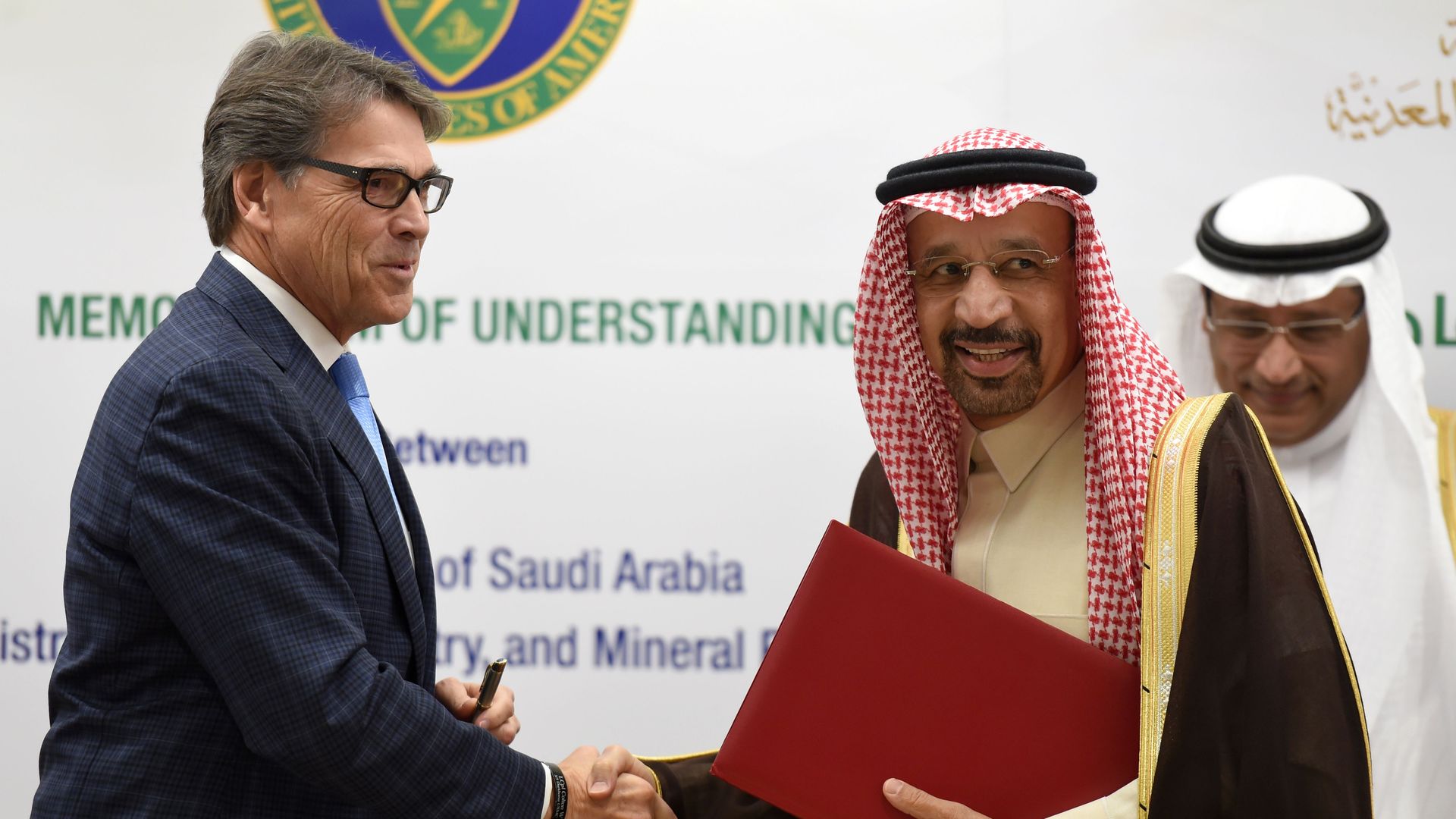Updated Mar 13, 2018 - Energy & Climate
Expert VoicesSaudi nuclear deal presents diplomatic dilemma for U.S.
Add Axios as your preferred source to
see more of our stories on Google.

Secretary Perry with Saudi Energy Minister Khalid al-Falih in Riyadh. Photo: Fayz Nureldine/AFP via Getty Images
